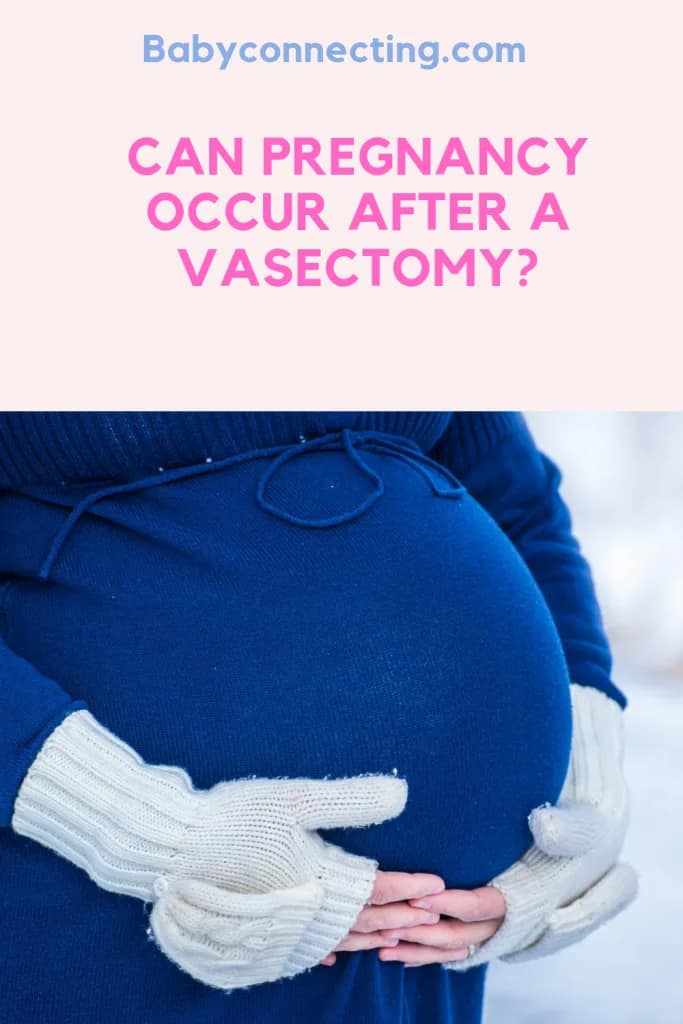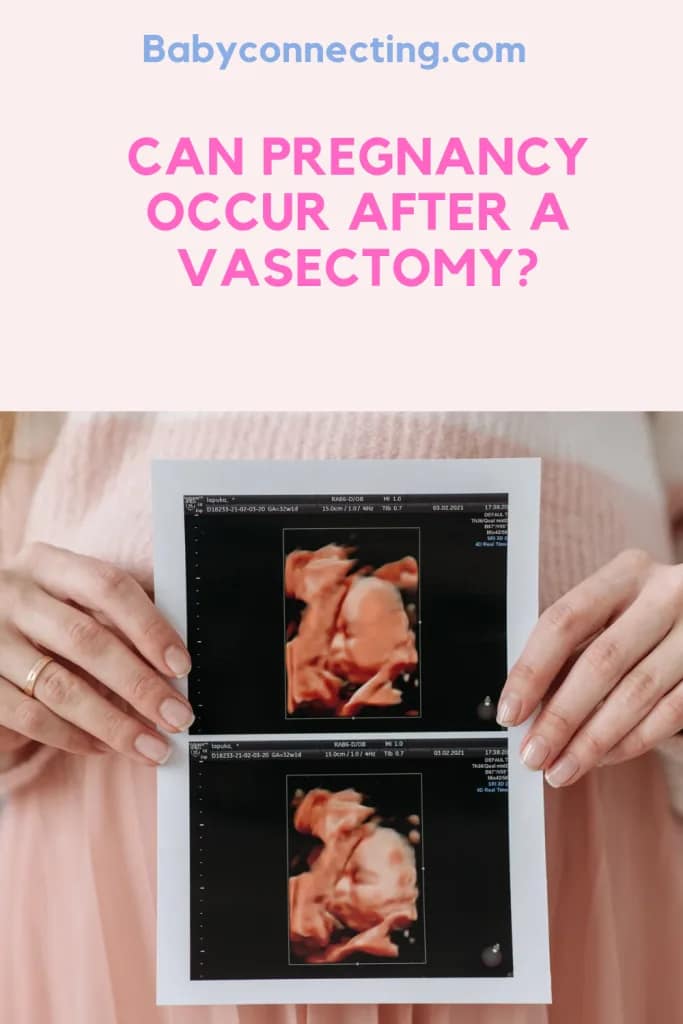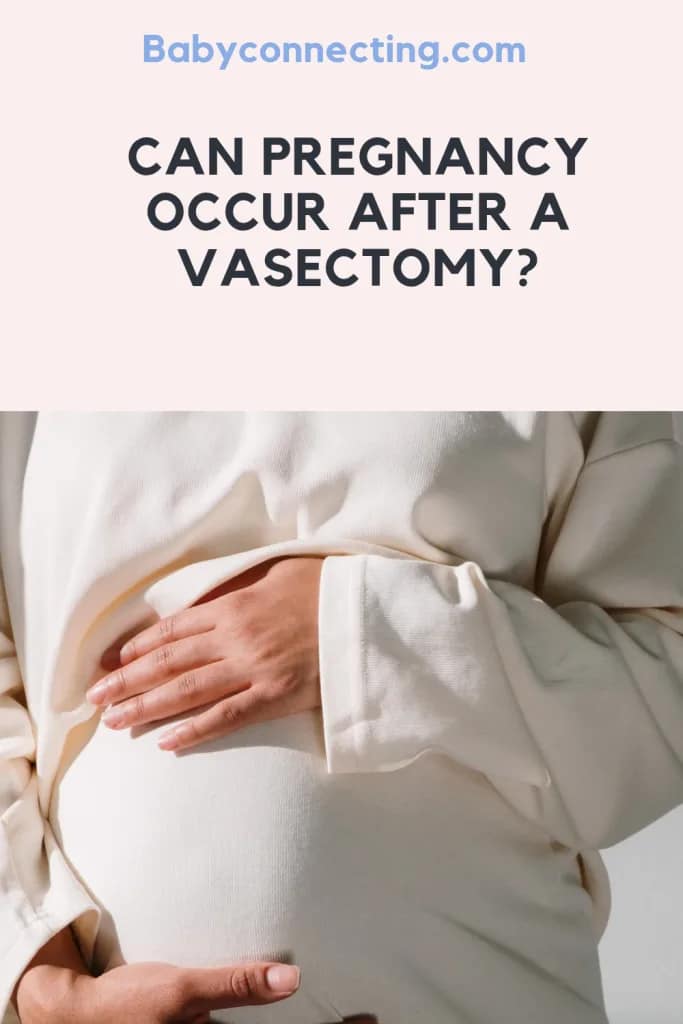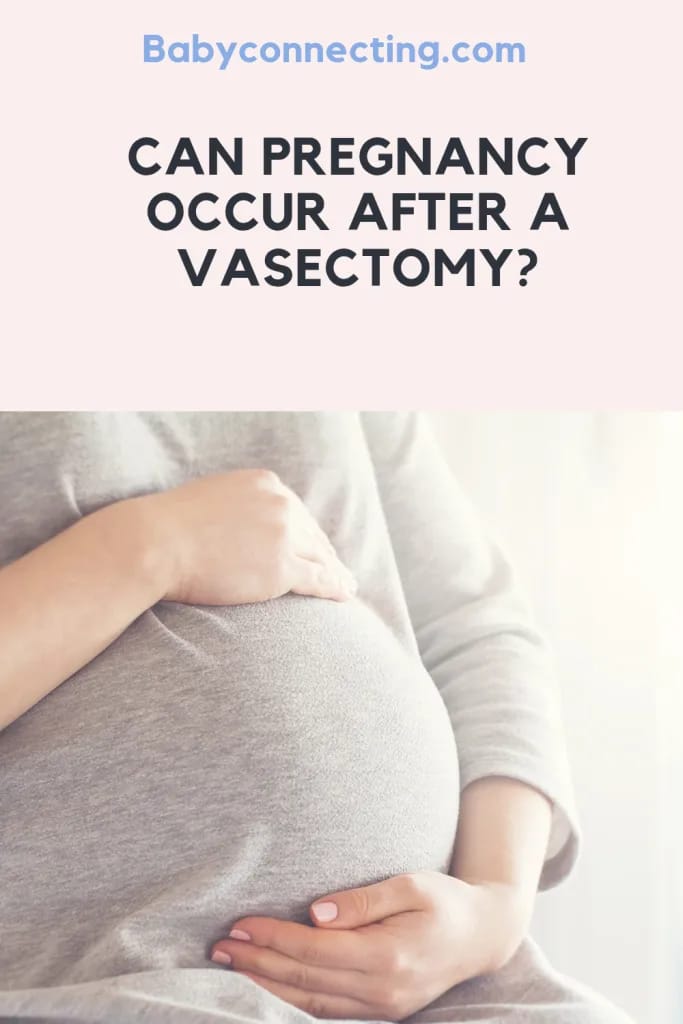Can Pregnancy Occur After a Vasectomy? Understanding the Possibilities and Maintaining Optimism
A vasectomy is widely regarded as one of the most effective forms of male contraception, with a success rate of over 99%. It offers couples a permanent solution to birth control, allowing them to enjoy intimacy without the worry of unplanned pregnancies. However, as with any medical procedure, no method is entirely foolproof. While rare, there are cases where pregnancy can occur after a vasectomy. Understanding these scenarios can help couples navigate their family planning journey with clarity and confidence.

In this post, we’ll explore the likelihood of pregnancy after a vasectomy, the reasons it may happen, and the importance of staying informed and positive.
What Is a Vasectomy and How Does It Work?
A vasectomy is a minor surgical procedure designed to permanently prevent sperm from being released during ejaculation. During the procedure:
1. The vas deferens, the tubes that carry sperm from the testicles to the urethra, are cut, sealed, or blocked.
2. This prevents sperm from mixing with semen, effectively eliminating the chance of fertilization.
While the procedure is highly effective, it’s essential to note that it does not impact testosterone levels, sexual performance, or ejaculation. The only change is the absence of sperm in the semen, which is crucial for preventing pregnancy.
Effectiveness of Vasectomy
When performed correctly and followed by a period of post-procedure monitoring, vasectomies are more than 99% effective. However, certain factors can influence their success:
Time Post-Procedure: Sperm may still be present in the semen for a short period after the procedure. Doctors typically recommend using alternative contraception until a follow-up semen analysis confirms the absence of sperm.
Technique Used: Different vasectomy techniques may carry slightly varying success rates. A skilled surgeon reduces the likelihood of complications.
Can Pregnancy Occur After a Vasectomy?
While rare, pregnancy can occur after a vasectomy in certain scenarios. Here are some possible reasons:
1. Residual Sperm Post-Procedure
After a vasectomy, it takes time for the remaining sperm to clear from the reproductive system. Until a doctor confirms the absence of sperm through a semen analysis (usually after about 20 ejaculations or 3 months), there is still a risk of pregnancy.
2. Recanalization
In some cases, the severed ends of the vas deferens may reconnect, a process called recanalization. This can allow sperm to mix with semen again, making pregnancy possible. Recanalization is uncommon but more likely to occur within the first year after the procedure.
3. Surgical Error
Although rare, improper technique or incomplete sealing of the vas deferens during the procedure can result in continued sperm production and potential fertility. Choosing a qualified and experienced surgeon minimizes this risk.
4. Early Sexual Activity Without Backup Contraception
Engaging in unprotected intercourse too soon after a vasectomy can result in pregnancy if sperm are still present in the semen. Doctors typically advise using backup contraception until follow-up tests confirm sterility.
5. Delayed Follow-Up
Skipping post-procedure follow-ups can increase the risk of unintended pregnancies. Semen analysis is essential to ensure the vasectomy was successful and that sperm is no longer present.

How Common Is Pregnancy After a Vasectomy?
Pregnancy after a vasectomy is extremely rare. Research estimates that:
Only about 1 in 2,000 vasectomies result in pregnancy.
The risk decreases significantly after the first year if follow-up care is completed and sperm absence is confirmed.
This high success rate makes vasectomy one of the most reliable contraceptive methods available.
Staying Positive: What Couples Should Know
The possibility of pregnancy after a vasectomy, while rare, should not overshadow the procedure’s effectiveness and benefits. Here’s how couples can approach the situation with confidence:
1. Trust the Process
A vasectomy is a safe, effective, and convenient contraceptive method. With proper follow-up and adherence to medical advice, the chances of pregnancy are minimal.
2. Be Proactive with Post-Procedure Care
Schedule and attend follow-up semen analyses to confirm the absence of sperm. Using backup contraception until receiving the all-clear significantly reduces the risk of pregnancy.
3. Stay Informed
Understanding the procedure, its success rates, and possible scenarios where it may fail helps couples make confident, informed decisions.
4. Celebrate Its Benefits
A vasectomy is a simple, minimally invasive procedure that offers long-term peace of mind. It allows couples to focus on their relationship and life goals without worrying about unintended pregnancies.
5. Focus on Communication
For couples considering a vasectomy, open communication is key. Discuss expectations, concerns, and follow-up care to ensure both partners feel confident in their decision.

What to Do If Pregnancy Occurs After a Vasectomy
If pregnancy occurs after a vasectomy, it can be a surprising and emotional experience. Here’s what to do:
1. Confirm the Pregnancy: Take a pregnancy test to verify the results.
2. Consult a Doctor: Seek medical advice to determine the cause of pregnancy and evaluate the effectiveness of the vasectomy.
3. Evaluate Options: Couples can discuss their options with a healthcare provider to make informed decisions about the next steps.
4. Consider Vasectomy Re-Testing or Revision: In cases where recanalization or surgical error occurred, a repeat procedure may be necessary for permanent contraception.
Alternatives and Complementary Methods
While a vasectomy is highly effective, some couples may choose to combine it with additional contraceptive measures for added reassurance. Options include:
Using condoms, particularly in the early months post-vasectomy.
Partnering with the use of female contraceptives, like birth control pills or intrauterine devices (IUDs).
These additional methods offer peace of mind and an extra layer of protection.
Conclusion: A Reliable and Empowering Choice
A vasectomy is a highly effective and reliable contraceptive option for couples seeking a permanent solution. While the risk of pregnancy after the procedure is minimal, being informed and proactive about follow-up care ensures its success.
For couples on this journey, the key is to maintain open communication, trust the process, and celebrate the freedom and confidence that comes with taking control of family planning. By staying informed and working closely with healthcare providers, couples can feel empowered in their decision to choose a vasectomy as a long-term contraceptive solution.
Remember, even in the rare event of pregnancy, medical guidance and support are always available to help navigate the next steps. Stay positive, informed, and proactive, and enjoy the benefits of a well-planned family journey.



